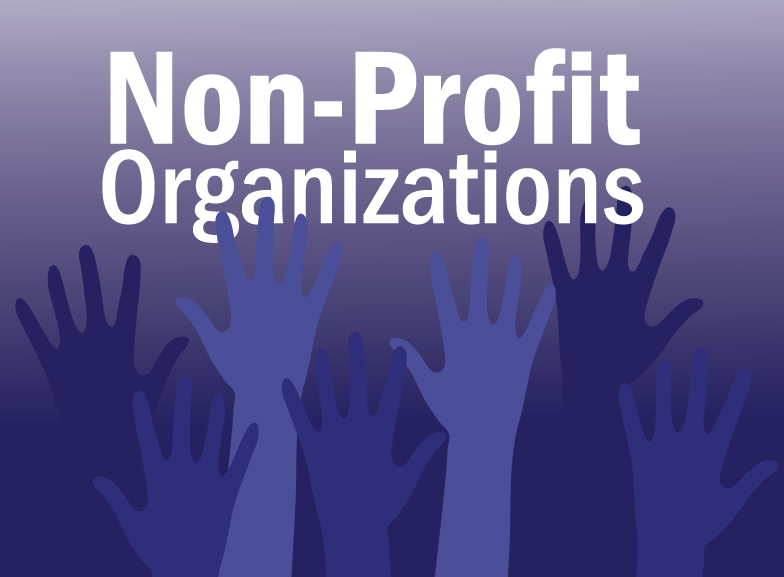From the May 2015 Issue.
The NFP segment of the U.S. market has historically been 5% of all businesses. This market share has grown to over 10% in the last decade. While business may be doing charitable, human interest or targeted work, this does not mean that the accounting software has to strictly comply with traditional NFP reporting for projects or spanning multiple years.
Lessons many of you have learned along the way is that many NFP businesses do great and noble work while others are shams. Some groups work extraordinary hours while others coast by on a few hours per day. There are a significant number of organizations supporting worthy causes that can barely make ends meet and that radically under pay their employees while volunteers serve the constituents in extraordinary ways, while others do little and make a lot. NFP doesn’t mean that the organizations aren’t making notable amounts of money or that the employees are poorly paid, as a number of you have discovered when performing audits, filling out form 990 or the supporting Schedule A.
What are some of the industries that are typically NFP? The list from Abila’s web site represents the NFP market fairly well: Animal Welfare, Arts, Culture, and Humanities, Environmental Organizations, Faith-based Organizations, Government, Healthcare, Higher Education, Human and Social Services, Independent, Private and Charter Schools, National Organizations, and Philanthropic Organizations. Although controversial in some people’s thinking, you should also add the structures currently used by political action committees to avoid paying tax, and other notable organizations such as the National Football League or the National Collegiate Athletic Association and most of the respective bowl games produced at the end of football season. Likewise, tribal governments and the rise of supporting gambling operations can be a source of much cash that has to be controlled and monitored. You see, NFP does not necessarily mean small with no money to spend or to be made.
So What Are The Most Important Systems to a NFP Organizations?
This question quickly becomes very broad. In a strict sense, supporting the cause and the mission of the organization for the benefit of the constituents is the bottom line. This could be a membership group, a special or common interest, or one of the many other qualifiers under the tax code.
Generally, NFP organizations want their computer systems to support: fund accounting including the tracking of hours and time in any given project, to track donors and support fund raising by development officers, and to accomplish the specific functions of their style of organization. My family has typically been involved in arts organizations that are NFP and provide local music or theatre opportunities and performances.
It is important to track the source of funds, the expenses, the cost of events and the number of people that are involved in the production and attendance at these events. In some cases, tickets are sold and these need to be tracked as well. With the rise of web sites and internet sales, the ability to sell tickets or receive donations via the web has become much more important. Yes, we can still run NFP organizations without complex computer support, but as fund source or donor expectations rise, government reporting becomes more complex and accountability is expected, computer system tracking becomes mandatory.
Vendors are providing tracking applications that can scale up and down in the NFP industry. For example, long-term players like CYMA NFP, Open Systems TRAVERSE NFP, Dynamics NAV with the Serenic add-on, AccuFund, Aplos, Blackbaud, BUCS Fund Accounting by Donald R Frey & Company, DENALI NonProfit by Cougar Mountain, FUND E-Z, FundWare acquired by Blackbaud, QuickBooks Nonprofit, along with Abila that acquired much of the Sage NFP software including MIP, and now sell Elevate, MIP Fund Accounting, netFORUM, Fundraising Online, Millennium, Fundraising 50, and Grant Management have all made successful businesses and products to support the NFP industries.
The youngest product on this list, Aplos, is a SaaS based product that can support very small NFP for accounting and donors. There are many more specialty products that could be named, but this is a good list of general products. For CPE purposes, www.accountingsoftwareworld.com/industry-solutions/not-for-profit maintains a list of current NFP products. If solid NFP accounting is needed by you or your clients, this list contains the best of the best.
How Can Systems Help the NFP?
Controlling costs, tracking projects, understanding donor interests and communicating with the constituents, volunteers and donors can make or break a NFP organization. Frequently, participants are there for the cause, and want to do the work, sometimes at any cost. A system can drive down costs and make more time and resources available for the cause.
Tracking and controlling source of funds and expenditures allow the cause to move forward or to select projects of greater impact. In today’s world of the proactive donor, accountability back to the donors is needed more than ever before. Further, it has become easier for NFP organizations to be created for a special short-term purpose and then to allow the organization to expire enabling fraudulent activity. As accountants, it may be hard for us to spot illegitimate organizations, but with the proper NFP system, it is easier to show that an organization is obtaining and using funds to meet their stated cause. We won’t agree with or support every cause, but we do live in a country that enables legitimate causes to be directly supported by individuals and organizations.
Better Results for Constituents and Donors
The right programs can provide better value for your NFP clients and their constituencies, donors and employees. Try to understand the needs of the organization, and how they function to determine if the system selected really meets their needs. Is there direct support for critical operational systems? Does the system help with visibility and transparency? Finally, can you structure the system to produce the appropriate reporting for governmental units, the board of directors, donors and the membership? It is a new world of proactive donors and members. Can you help them profit and carry out their cause?
Thanks for reading CPA Practice Advisor!
Subscribe Already registered? Log In
Need more information? Read the FAQs





